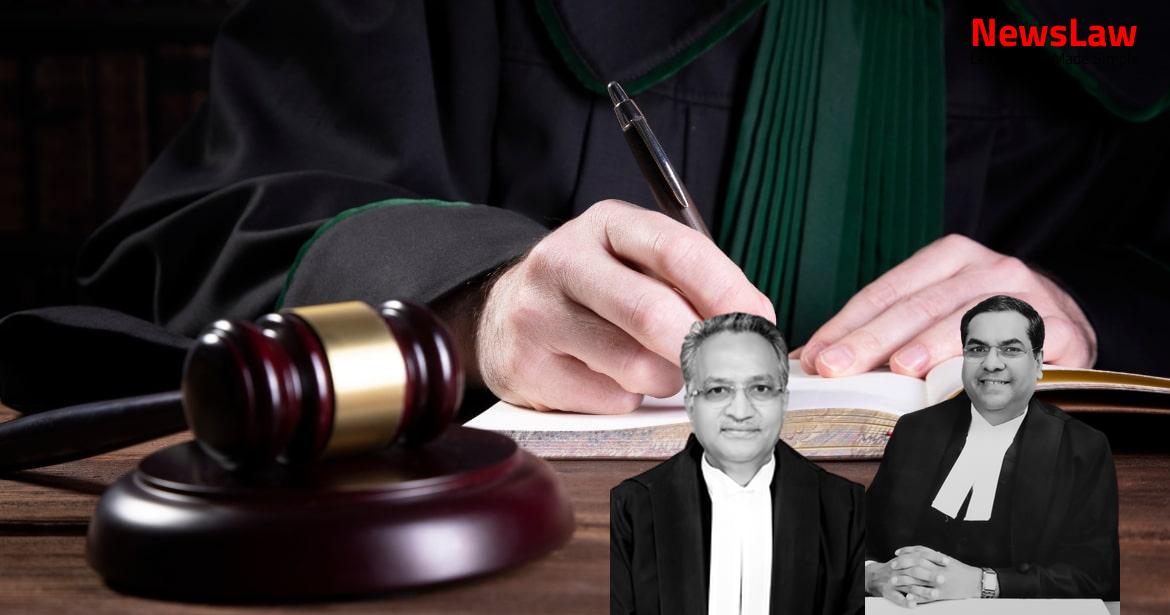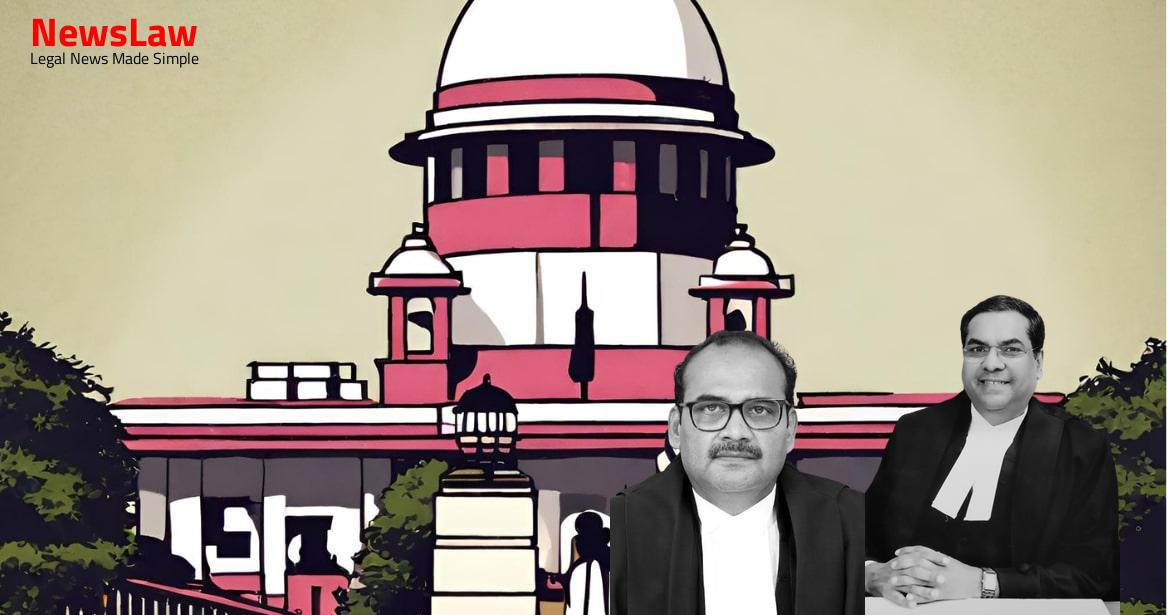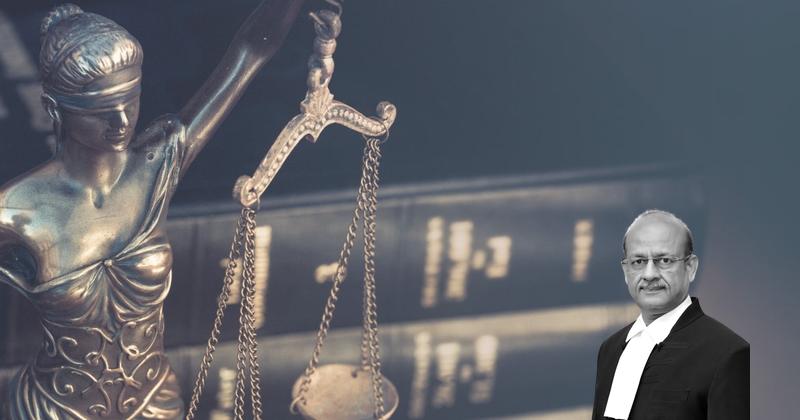Explore the nuanced legal scrutiny by the High Court on the method of determining compensation in land acquisition cases. The court’s in-depth analysis focuses on the constitutional considerations, particularly the importance of providing just and reasonable compensation to landowners. Stay tuned to unravel the intricate details of this significant legal debate.
Facts
- Respondent No. 4 filed a cross-appeal questioning the rejection of their appeal by the Division Bench on the grounds of laches and unexplained delay.
- The acquisition process initiated in 1982 based on a show cause notice was considered to have lapsed by the petitioners due to the passage of time, barring any further acquisition after 23 years.
- The Division Bench rejected the independent appeal filed by respondent No. 4 citing unexplained delay in seeking relief.
- The writ petitioners challenged the impugned notification issued in 2005 by the State of Karnataka, alleging inadequate consideration of objections and excess of authority power.
- Respondent No. 3 (V. Balasubramanya) initially filed appeals but later withdrew them, having also filed multiple writ petitions on the matter before the High Court of Karnataka.
- The Division Bench did not examine the correctness of the finding of lapsing of acquisition and inadequate consideration due to the withdrawal of the cross appeal by the writ petitioner.
- The Division Bench upheld the declaration that Section 20 of the 1973 Act was unconstitutional, focusing on the issue of determining payment based on property tax rather than fair market value.
- The learned Single Judge declared Section 20 of the 1973 Act as ultra vires and rejected claims of lapse of acquisition and inadequate consideration of objections.
- The Division Bench modified the direction of the Single Judge on determining the amount payable to land losers, stating it is within the State’s jurisdiction to amend Section 20 of the Act.
- The State of Karnataka’s appeal against the declaration of Section 20 as ultra vires was disposed of, leading to a civil appeal.
Issue
- The Division Bench posed the question of whether the judgment in K.T. Plantation Private Limited is applicable and if the order of the Single Judge should be interfered with.
- The Division Bench referred to specific paragraphs of the K.T. Plantation Private Limited judgment (189, 190 to 193, 198, 201, and 209) in their analysis.
- It was concluded that the State must demonstrate to the Court that the amount fixed under section 20 of the Act is not illusory and constitutes just and reasonable compensation.
Arguments
- The State Legislature has the authority to prescribe different methods for determining the amount payable to land losers under the 1973 Act.
- Rehabilitation of slum dwellers under the 1973 Act involves the distribution of material resources of the community, post land vesting in the State free from encumbrances.
- Challenges to Section 20 of the 1973 Act were disposed of cryptically by the learned Single Judge, citing the need for equal protection of the law.
- The State’s social service obligations can justify lands being acquired, but the amount offered to land losers under property tax-based assessments could be illusory, arbitrary, and discriminatory.
- Section 20 of the 1973 Act is aligned with the expanse of Article 39(b) of the Constitution and aims to compensate land losers through a specific method.
- The High Court was questioned for not considering the purport of Section 17 of the 1973 Act due to lack of pleading, and the State argued against basing compensation solely on property tax amounts.
- The State Legislature’s enactment of the 1973 Act was in line with the Constitution, providing authority to determine compensation for land acquisition in a manner different from the Land Acquisition Act of 1894.
- The State, in exercising eminent domain to acquire property for public use without the owner’s consent, must provide just compensation.
- The determination of the amount payable as compensation falls within the legislative province.
- The State failed to explain and justify the method of determining the value of the land, which should be equivalent to fair market value.
- Deficiency in pleadings of both parties regarding compensation schemes under the Slum Areas Act, which do not provide for payment equal to market value of land.
Analysis
- The Division Bench considered arguments regarding the immunity of the 1973 Act under Article 31C of the Constitution.
- The State failed to show that the compensation specified in the Act was reasonable or close to market value.
- The High Court held that Article 31C protection did not apply to Section 20 of the 1973 Act.
- The High Court also noted the absence of a provision for lapsing of acquisition in the 1973 Act.
- Section 20 of the 1973 Act was struck down as unconstitutional by the court.
- The valuation of land involves judgment and computation, including the method of capitalization value.
- The argument regarding acquisition under the Slum Areas Act was extensively debated in the appeals.
- The court emphasized the need for compensation based on market value rather than 300 times the property tax.
- The State’s defence of Section 20 based on Article 31C was recognized by the court but ultimately rejected.
- A detailed analysis of the validity of Section 20 was deemed necessary by the Constitutional Court.
- The presumption of constitutionality of laws made by Parliament/State Legislature was acknowledged.
- Questions regarding the determination of market value and legislative action to replace Section 20 were highlighted.
- The obligation of providing shelter to slum dwellers was emphasized as a key consideration in the acquisition process.
- The exercise of power must be done within a reasonable time to prevent miscarriage of justice, misuse, or abuse of power.
- The High Court will examine the plea and determine the length of reasonable time based on the facts of the case and the Act’s scheme.
- Relegating the parties to the High Court for reconsideration of the writ petitions, including the question of the constitutional validity of Section 20 of the 1973 Act.
- The High Court will reconsider the writ petitions afresh on their merits and in accordance with the law, allowing both parties to present their case effectively.
- The power to effectuate a purpose must be exercised within a reasonable time frame as urged by the writ petitioners.
Decision
- The appeals are disposed of, with the option for the learned Single Judge of the High Court to await the decision of a larger Bench of the Court in a reference made in terms of Property Owners’ Association.
- All contentions from both sides are left open for further consideration.
- The impugned judgments and orders of the Division Bench of the High Court and the Single Judge are set aside, restoring certain writ petitions to the High Court for fresh proceedings.
- The High Court’s declaration regarding Section 20 of the 1973 Act is nullified, allowing Section 20 to be in full effect until further orders of the High Court.
- There is no order as to costs for the proceedings.
- The High Court is encouraged to expedite the disposal of the petitions in accordance with the law.
- Any pending applications are disposed of accordingly.
- Parties are given six weeks to amend their pleadings if need be, before the matter is heard by the Single Judge of the High Court in September 2022.
Case Title: THE STATE OF KARNATAKA Vs. B.R MURALIDHAR (2022 INSC 761)
Case Number: C.A. No.-001966-001966 / 2013



